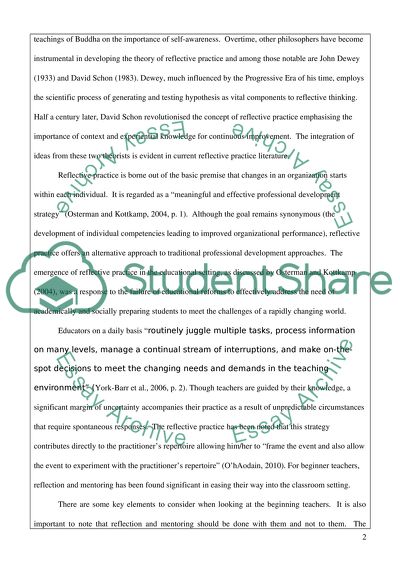Cite this document
(Beginning Teachers Perceptions of Reflective Practice and Mentoring Assignment, n.d.)
Beginning Teachers Perceptions of Reflective Practice and Mentoring Assignment. Retrieved from https://studentshare.org/education/1568880-reflective-teaching-in-teaching-and-learning-or-chilldrens-literature-in-victorian-period-for-teaching-in-singapore
Beginning Teachers Perceptions of Reflective Practice and Mentoring Assignment. Retrieved from https://studentshare.org/education/1568880-reflective-teaching-in-teaching-and-learning-or-chilldrens-literature-in-victorian-period-for-teaching-in-singapore
(Beginning Teachers Perceptions of Reflective Practice and Mentoring Assignment)
Beginning Teachers Perceptions of Reflective Practice and Mentoring Assignment. https://studentshare.org/education/1568880-reflective-teaching-in-teaching-and-learning-or-chilldrens-literature-in-victorian-period-for-teaching-in-singapore.
Beginning Teachers Perceptions of Reflective Practice and Mentoring Assignment. https://studentshare.org/education/1568880-reflective-teaching-in-teaching-and-learning-or-chilldrens-literature-in-victorian-period-for-teaching-in-singapore.
“Beginning Teachers Perceptions of Reflective Practice and Mentoring Assignment”, n.d. https://studentshare.org/education/1568880-reflective-teaching-in-teaching-and-learning-or-chilldrens-literature-in-victorian-period-for-teaching-in-singapore.


